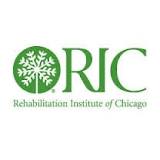Very Intensive Variable Repetitive AmbulatioN Training
| Status: | Recruiting |
|---|---|
| Conditions: | Neurology |
| Therapuetic Areas: | Neurology |
| Healthy: | No |
| Age Range: | 30 - 85 |
| Updated: | 4/26/2017 |
| Start Date: | July 2015 |
| End Date: | July 2019 |
| Contact: | Thomas G Hornby, PT, PhD |
| Email: | g-hornby@northwestern.edu |
| Phone: | (312) 238-1397 |
The overall objective of this subproject is to evaluate the individual and paired
contributions of intensity and variability of stepping training on lower extremity (LE)
function, health and community participation in patients with chronic hemiparesis
post-stroke.
contributions of intensity and variability of stepping training on lower extremity (LE)
function, health and community participation in patients with chronic hemiparesis
post-stroke.
The overall objective of this subproject is to evaluate the individual and paired
contributions of intensity and variability of stepping training on lower extremity (LE)
function, health and community participation in patients with chronic hemiparesis
post-stroke. Using a RCT design/Intervention Efficacy paradigm, Aim 1 will investigate the
independent and combined (paired) contributions of intensity and variability of stepping
training on locomotor function, with secondary measures of health and community mobility.
For Aim 2, we will evaluate the independent and combined effects of intensity and
variability of stepping training on non-walking LE tasks. In Aim 3, we will evaluate the
cost effectiveness of providing these interventions to accelerate motor recovery and health.
Our central hypothesis is that results of this study will provide a theoretical foundation
for implementation of physical therapy interventions which can facilitate short-term gains
in locomotor function, and contribute to long-term improvements in health, function and
participation through increased community mobility.
contributions of intensity and variability of stepping training on lower extremity (LE)
function, health and community participation in patients with chronic hemiparesis
post-stroke. Using a RCT design/Intervention Efficacy paradigm, Aim 1 will investigate the
independent and combined (paired) contributions of intensity and variability of stepping
training on locomotor function, with secondary measures of health and community mobility.
For Aim 2, we will evaluate the independent and combined effects of intensity and
variability of stepping training on non-walking LE tasks. In Aim 3, we will evaluate the
cost effectiveness of providing these interventions to accelerate motor recovery and health.
Our central hypothesis is that results of this study will provide a theoretical foundation
for implementation of physical therapy interventions which can facilitate short-term gains
in locomotor function, and contribute to long-term improvements in health, function and
participation through increased community mobility.
Inclusion Criteria:
- history unilateral stroke > 6 months duration
- walks without physical assistance at speeds < 1.0 m/s
Exclusion Criteria:
- no other cardiopulmonary, metabolic, neurological orthopedic injury that may
contribute to walking outcomes
We found this trial at
1
site
345 E Superior St
Chicago, Illinois 60611
Chicago, Illinois 60611
(312) 238-1000

Principal Investigator: Thomas G Hornby, PT, PhD
Rehabilitation Institute of Chicago The Rehabilitation Institute of Chicago (RIC) is an independent, 501(c)3, non-profit...
Click here to add this to my saved trials